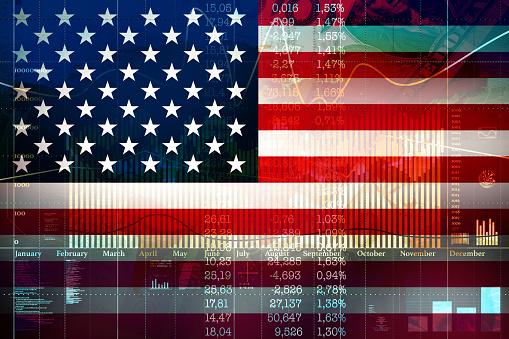Contributing Writer
- FMA
- The Fabricator
- FABTECH
- Canadian Metalworking
Categories
- Additive Manufacturing
- Aluminum Welding
- Arc Welding
- Assembly and Joining
- Automation and Robotics
- Bending and Forming
- Consumables
- Cutting and Weld Prep
- Electric Vehicles
- En Español
- Finishing
- Hydroforming
- Laser Cutting
- Laser Welding
- Machining
- Manufacturing Software
- Materials Handling
- Metals/Materials
- Oxyfuel Cutting
- Plasma Cutting
- Power Tools
- Punching and Other Holemaking
- Roll Forming
- Safety
- Sawing
- Shearing
- Shop Management
- Testing and Measuring
- Tube and Pipe Fabrication
- Tube and Pipe Production
- Waterjet Cutting
Industry Directory
Webcasts
Podcasts
FAB 40
Advertise
Subscribe
Account Login
Search
Federal guidelines set for those looking to bypass Buy American rules
The Made in America Office has the final say on these questions from metal fabricators
- By Stephen Barlas
- UPDATED July 12, 2021
- July 12, 2021

Does a federal project require steel that only can be sourced from an overseas source? That decision will now be handled by the Made in America Office, and getting exclusions from Buy American requirements isn’t going to be easy for some metal fabricators. rzoze19/ iStock/Getty Images Plus
Key federal agencies responsible for adhering to Buy American laws are now figuring out how to implement White House guidance issued in June.
That guidance tells agencies such as the Department of Defense (DoD), the Department of Transportation, and the Environmental Protection Agency the information they need to show the new White House Made in America Office (MIAO) when waiver requests are made to buy foreign-made inputs, including steel and aluminum. The new MIAO is headed by Celeste Drake, who has had professional affiliations with organized labor, including as a trade and globalization policy specialist for the AFL-CIO.
The White House guidance seeks to implement President Joe Biden’s Made in America executive order, which comes into play when a federal agency hears from a contractor that it cannot find a U.S. supplier—say for a steel product for a bridge or a pipeline. Often federal contracts require domestically sourced content because they are covered by one of a number of federal laws, such as the Buy American Act (BAA) of 1933; the Berry Amendment, which covers DoD purchases; the Kissell Amendment, which covers the Department of Homeland; the Jones Act of 1920, which prohibits any non-U.S. vessel from participating in trade between points of the U.S.; the Cargo Preference Acts of 1904 and 1954; and others. The guidance provides a long laundry list of data that must be submitted.
The MIAO’s goal is to complete the majority of its waiver reviews within three to seven business days and in not more than 15 days from submission to OMB. However, the memorandum from the White House Office of Management and Budget (OMB)—which is the MIAO’s parent—states that these time frames may be revised after review processes are developed and/or based on experience.
Federal agency procurements covered by these Buy American laws do have some wiggle room worked into their processes if a product is not available from a U.S. supplier or is available but too expensive. The MIAO will only be considering nonavailability waivers at the start, not those having to do with costs.
Scott Paul, president of the Alliance for American Manufacturing, a group with a significant labor union membership, said, “It’s essential to close loopholes, reduce waivers, broaden coverage to more federal spending and more manufactured products, and strengthen origin standards for determining whether a product is produced in the United States. The law should mean what it says: An American product should be truly made in America.”
It is not clear, however, whether metal fabricators that have had to look outside the U.S. for steel and aluminum for reasons of both availability and cost will be helped or hurt as federal agencies implement the guidance. To the extent that a fabricator is making pipes for an energy product, furniture for a federal office building, trucks for a federal fleet, or any other manufactured product covered by a domestic content requirement, will those federal contracts be in jeopardy if the metal fabricator cannot find a U.S. steel supplier that can meet very specific material specifications? Getting an exclusion to use a foreign supplier will not be as easy as it was in the past.
Tariff Changes up for Grabs
Exclusions to buy foreign products also are up for grabs as Congress decides whether to rewrite some of the trade laws around Section 301 tariffs.
The Section 301 tariffs should not be confused with the Section 232 tariffs that the Trump administration imposed on steel and aluminum. The Section 301 tariffs come into play where acts, policies, and practices of a foreign country are unreasonable or discriminatory and burden or restrict U.S. commerce. For example, Trump administration tariffs on various products from China were established under Section 301 because of China’s policies on intellectual property and technology transfer.
In June the Senate voted 68 to 32 to approve The American Innovation and Competition Act. It includes The Trade Act of 2021, which contains provisions to re-establish a Section 301 tariff exclusion and renewal process. The new section requires the office of the U.S. Trade Representative to gauge the impact of proposed actions on consumers, establishes and outlines an exclusion process, sets specific criteria for implementation of the exclusion process, establishes a renewal process, and provides retroactive tariff relief. The House companion bill is called The National Science Foundation for the Future Act. It parallels some portions of the Senate bill but includes no tariff provisions.
subscribe now

The Fabricator is North America's leading magazine for the metal forming and fabricating industry. The magazine delivers the news, technical articles, and case histories that enable fabricators to do their jobs more efficiently. The Fabricator has served the industry since 1970.
start your free subscriptionAbout the Author

Stephen Barlas
- Stay connected from anywhere

Easily access valuable industry resources now with full access to the digital edition of The Fabricator.

Easily access valuable industry resources now with full access to the digital edition of The Welder.

Easily access valuable industry resources now with full access to the digital edition of The Tube and Pipe Journal.
- Podcasting
- Podcast:
- The Fabricator Podcast
- Published:
- 04/16/2024
- Running Time:
- 63:29
In this episode of The Fabricator Podcast, Caleb Chamberlain, co-founder and CEO of OSH Cut, discusses his company’s...
- Trending Articles
AI, machine learning, and the future of metal fabrication

Employee ownership: The best way to ensure engagement

Steel industry reacts to Nucor’s new weekly published HRC price

How to set a press brake backgauge manually

Capturing, recording equipment inspection data for FMEA

- Industry Events
16th Annual Safety Conference
- April 30 - May 1, 2024
- Elgin,
Pipe and Tube Conference
- May 21 - 22, 2024
- Omaha, NE
World-Class Roll Forming Workshop
- June 5 - 6, 2024
- Louisville, KY
Advanced Laser Application Workshop
- June 25 - 27, 2024
- Novi, MI


























